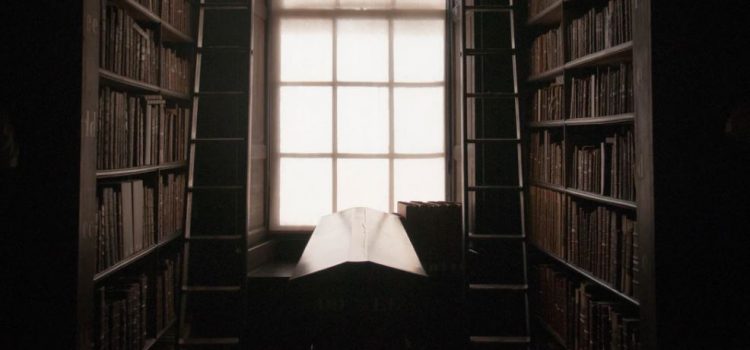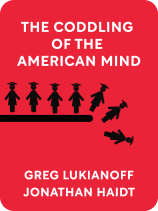

This article is an excerpt from the Shortform book guide to "The Coddling of the American Mind" by Greg Lukianoff and Jonathan Haidt. Shortform has the world's best summaries and analyses of books you should be reading.
Like this article? Sign up for a free trial here .
In what ways are colleges straying away from viewpoint diversity? Why are opposing viewpoints important for a stimulating, college environment?
In The Coddling of the American Mind, Jonathan Haidt and Greg Lukianoff believe that left-leaning professors are far outnumbering conservative professors which is leading to an environment that is less tolerant of viewpoint diversity. They share examples of individuals who have been driven out due to their ideologies.
Keep reading for Jonathan Haidt and Greg Lukianoff’s take on the growing lack of viewpoint diversity in colleges.
Why We Need Viewpoint Diversity
Although The Coddling of the American Mind focused a lot on the attitudes of college students, they are by no means the sole perpetrators of groupthink mentality on campus. In many ways, they are merely responding to the growing uniformity of opinion among their professors.
While professors have always leaned left (especially in the humanities and social sciences), leftist academics have gained a dominant position within academia, far outnumbering conservative or right-leaning professors—often by margins of five-to-one.
As opinion within academic circles has grown more uniform, it has become less tolerant of diverging viewpoints. This lack of viewpoint diversity is antithetical to the scholarly and intellectually stimulating environment that is supposed to define university life.
It is certainly true that everyone, including university professors and researchers, believes that their opinions are correct. Because we believe this, we tend to engage in confirmation bias, seeking out evidence that confirms our beliefs, while ignoring evidence that contradicts our beliefs.
But in an academic setting featuring a healthy diversity of viewpoints, rigorous peer review of a professor’s writing and research holds this impulse in check—essentially, the faculty’s confirmation biases cancel each other out. In such a well-functioning marketplace of ideas, it is difficult for rigid orthodoxy and groupthink to take hold.
But the exploration and vetting of diverse ideas are impossible under the conditions of strict ideological uniformity that exist on today’s college campuses. Scholars increasingly evaluate one another’s work not on its merits, but on the basis of whether or not it deviates from shared left-wing orthodoxy. As we’ll see, this growing intolerance for ideological impurity creates an environment where professors are vulnerable to witch hunts—often led by their colleagues.
Rebecca Tuvel and Academic Witch Hunts
Recent years have seen a disturbing willingness within academic journals and publications to censor views that contradict left-wing orthodoxy, particularly when it comes to matters of race and class.
In 2017, the feminist philosophy journal Hypatia published an article titled “In Defense of Transracialism,” by Rhodes College assistant professor Rebecca Tuvel. Tuvel argued that the growing acceptance of transgender people and the simultaneous condemnation of transracialism (the belief that people should have the freedom to choose their own race and be able to transition to another racial group) represented a contradiction.
Tuvel argued that one’s choice of gender identity and one’s choice of racial identity both raised similar moral and ethical concerns and were worthy of respect. Her article caused an uproar, as people from across academia penned an open letter to Hypatia demanding that Tuvel’s article be retracted—a severe sanction usually reserved for instances of outright fraud or plagiarism.
These critics did not argue that Tuvel’s findings were factually incorrect or that they needed further study. They argued that simply publishing the piece was “transphobic” and amounted to an act of “violence” against transgender people and people of color.
The letter did not address the merits of Tuvel’s arguments; rather, it focused on her word choice in the article, lambasting her for using terms such as “transgenderism” and for “deadnaming” a famous trans woman (by referring to her pre-transition name).
Many of Tuvel’s colleagues sympathized with her plight but refused to publicly come to her defense for fear of angering the digital mob. The Tuvel affair was the epitome of a modern-day academic witch hunt—an unthinking mob using the persecution of an innocent to foster in-group cohesion and individually signal their ideological purity to one another.
Day of Absence at Evergreen State
These intolerant attitudes have filtered down to the students themselves. At Evergreen State College in 2017, a politically progressive biology professor named Bret Weinstein wrote an email on a faculty listserv questioning the wisdom and fairness of a planned “Day of Absence,” in which white students were asked by the organizers to stay away from campus.
Although he believed his email to be innocuous and sent in good faith, Weinstein soon saw it set off a firestorm of controversy at the college. Days after sending the email, a mob of students invaded Weinstein’s classroom, surrounded him, and refused to allow him to leave. Over the course of several days, students occupied various administrative buildings across campus, barricading university officials inside (including university president George Bridges). In the end, Weinstein and his wife (also a professor) were forced to leave the university and seek employment elsewhere.
The incident represented a total capitulation to a violent mob by the leadership of an American college. No students were punished for their intimidation tactics and disruption of the learning process.

———End of Preview———
Like what you just read? Read the rest of the world's best book summary and analysis of Greg Lukianoff and Jonathan Haidt's "The Coddling of the American Mind" at Shortform .
Here's what you'll find in our full The Coddling of the American Mind summary :
- The "three Untruths" that have taken hold of young people
- The damage that "speech codes" cause on college campuses
- How colleges are increasingly seeing students as customers






